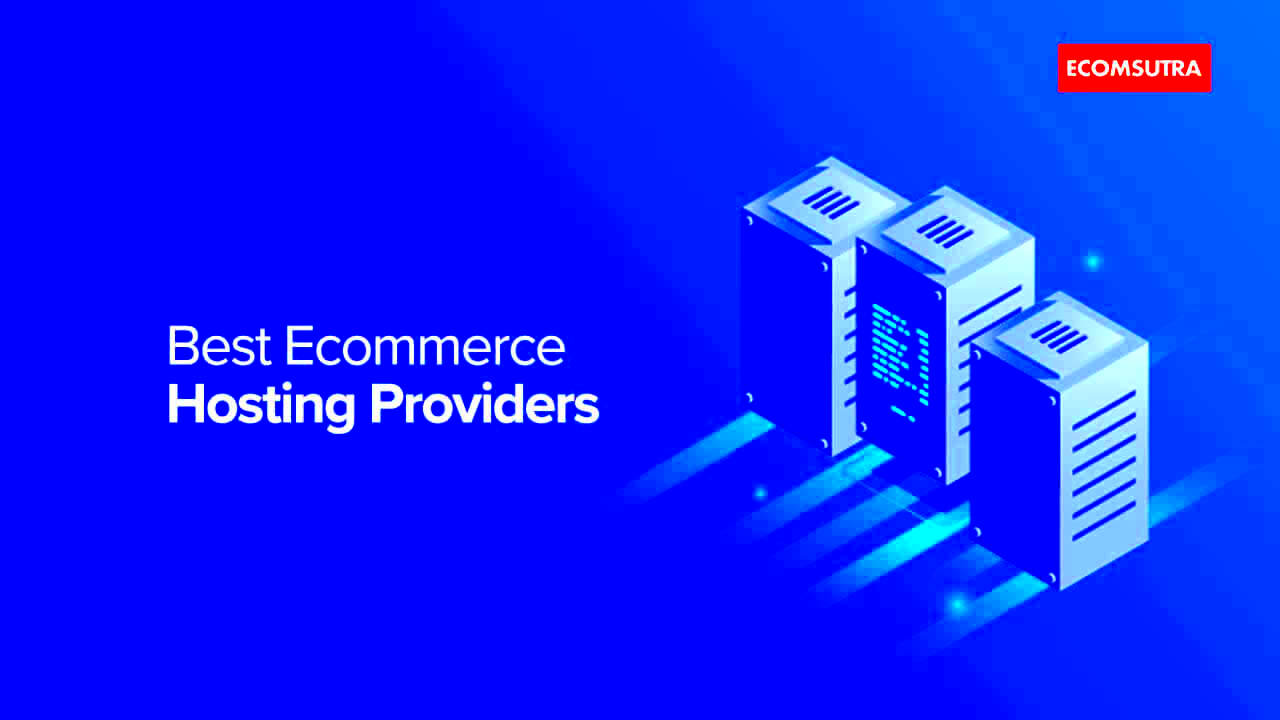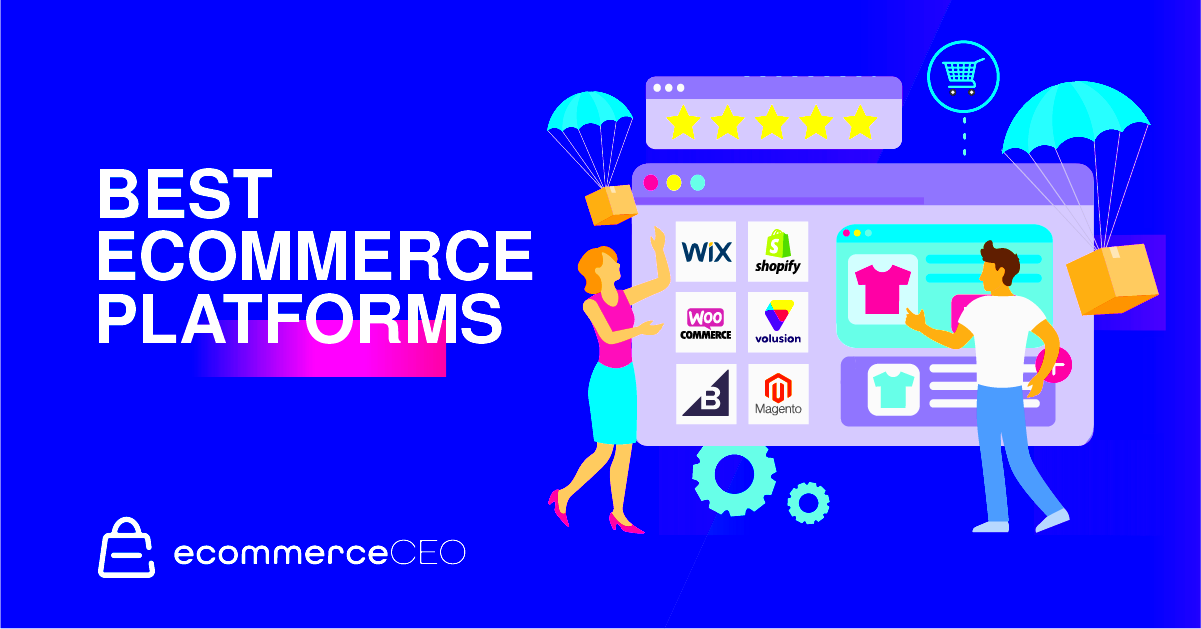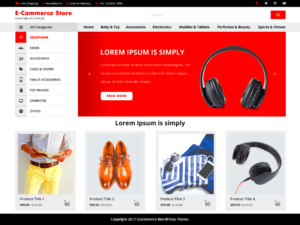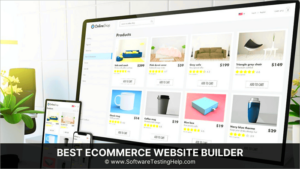In today’s digital age, having an online presence is essential for any business, especially if you’re looking to sell products or services. Ecommerce website solutions empower businesses to set up and manage online stores effectively. Whether you’re a budding entrepreneur or an established brand, these solutions offer the tools and features needed to create a seamless shopping experience for customers. From customizable templates to payment processing, ecommerce platforms simplify the complexity of online selling.
Factors to Consider When Choosing an Ecommerce Provider

Choosing the right ecommerce provider can feel overwhelming with so many options available. However, there are some key factors you should keep in mind to ensure you make the best choice for your business. Here’s a breakdown of those factors:
- Features and Functionality: Look for features like product management, inventory tracking, analytics, and SEO tools. Make sure the platform aligns with your business needs.
- Ease of Use: A user-friendly interface is crucial, especially if you’re not tech-savvy. Check if the platform offers drag-and-drop functionality or easy customization options.
- Payment Gateway Options: Ensure the provider supports multiple payment gateways to accommodate various customer preferences. The more options, the better!
- Customer Support: Reliable customer support is vital, especially during critical times. Look for providers that offer 24/7 support via various channels like chat, email, or phone.
- Cost: Compare pricing plans and be wary of hidden costs. Consider not just the initial investment but also transaction fees and ongoing expenses.
- Scalability: Choose a solution that can grow with your business. You don’t want to outgrow your platform shortly after launching!
- Security: Protecting your customers’ sensitive data is paramount. Ensure the provider has strong security measures and compliance with regulations like GDPR.
By considering these factors, you can make an informed decision and choose an ecommerce provider that not only meets your current needs but also positions your business for future growth.
Top Ecommerce Website Solution Providers

When it comes to building a successful online store, choosing the right provider for your eCommerce website solutions is crucial. The options can be overwhelming, but there are several standout providers that cater to various business needs and budget levels. Below, I’ll highlight some of the most reputable eCommerce website solution providers that have earned their stripes in the industry.
- Shopify – Best for beginners and small businesses. Shopify offers easy-to-use templates, countless integrations, and a user-friendly interface. With plans starting at just $29/month, it’s an affordable way to start selling online.
- WooCommerce – Ideal for WordPress users. WooCommerce is an open-source plugin that turns a standard WordPress site into a fully functional eCommerce store. It allows for extensive customization and scalability but requires more technical know-how.
- BigCommerce – Perfect for growing brands. It provides a wide range of built-in features and has no transaction fees unlike its competitors. Plans start at $29.95/month, making it great for businesses of all sizes.
- Magento – Best for large enterprises. While it offers immense customization, it’s more suited for businesses with programming skills or those that can hire a developer. The community edition is free, but hosting and development could add up.
- Wix eCommerce – Great for creative individuals. Wix combines beautiful design with eCommerce functionality. The plans start at $23/month, with intuitive design tools that require zero coding skills.
These providers each bring something unique to the table, so you’ll want to consider your specific needs and budget when making your choice!
Comparison of Features and Pricing
To make an informed decision, it’s helpful to compare the key features and pricing of these top eCommerce website solution providers. Below is a quick breakdown of what each provider offers:
| Provider | Starting Price | Key Features |
|---|---|---|
| Shopify | $29/month |
|
| WooCommerce | Free (hosting fees apply) |
|
| BigCommerce | $29.95/month |
|
| Magento | Free (hosting fees apply) |
|
| Wix eCommerce | $23/month |
|
Each of these providers offers a unique combination of features and pricing structures. Be sure to assess what’s most important for your business, whether that’s ease of use, customizability, or cost efficiency, before making your decision!
Case Studies of Successful Ecommerce Implementations
When it comes to ecommerce, real-life success stories can serve as a powerful source of inspiration and guidance for anyone looking to establish or enhance their online business. Here, we’ll explore some compelling case studies that showcase how various brands have thrived by implementing the right ecommerce solutions.
1. Warby Parker
This eyewear retailer transformed the traditional glasses shopping experience by allowing customers to try on glasses at home. Through a user-friendly website and a seamless ordering process, Warby Parker effectively increased customer engagement and conversion rates. Their innovative use of technology and commitment to customer service helped them create a unique brand identity in a competitive market.
2. Dollar Shave Club
Starting as a subscription service for razors, Dollar Shave Club quickly became famous for its humorous marketing videos and straightforward subscription model. By focusing on a niche market and leveraging social media for outreach, they captured a significant share of the market and were later acquired by Unilever for a whopping $1 billion—a testament to their solid ecommerce strategy.
3. Gymshark
This fitness apparel brand built a community-driven approach around their ecommerce platform. By collaborating with influencers and engaging with customers through social media channels, Gymshark’s sales sky-rocketed, especially during the pandemic. Their agile strategies in inventory and fulfillment logistics have set a precedent in the fitness industry.
These case studies serve as a reminder that a well-implemented ecommerce strategy, tailored to specific target audiences, can yield impressive results. Whether through innovative product offerings, exceptional marketing, or community engagement, the right approach can elevate an ecommerce business to new heights.
How to Migrate to a New Ecommerce Platform
Changing your ecommerce platform can seem daunting, but with the right steps, it can be a smooth transition that brings new opportunities for growth. Whether you’re looking for better functionality, lower fees, or enhanced user experience, here’s how to migrate effectively.
1. Assess Your Current Platform
- Identify pain points: What is lacking in your current system?
- Evaluate performance metrics: Understand conversion rates and user experience.
- Gather feedback: Talk to your team and customers about what they like or dislike.
2. Choose the Right New Platform
- Research options: Look for platforms that fit your business needs, like Shopify, Magento, or WooCommerce.
- Read reviews: Check user feedback and case studies to find credible solutions.
- Trial period: Consider platforms with free trials to test out features.
3. Plan the Migration
A robust migration plan is essential. This includes:
- Mapping out data: Outline what data needs to be transferred, like customers, products, and order history.
- Setting timelines: Create a timeline to avoid disruption during peak business hours.
- Backup: Always back up your current data before starting the migration.
4. Execute the Migration
During this crucial phase, ensure a meticulous approach:
- Data transfer: Use tools or services that specialize in data migration.
- Testing: Prioritize testing functionality, payments, and user experience.
5. Post-Migration Review
- Monitor performance: Analyze metrics to gauge success.
- Seek feedback: Engage customers for their input on the transition.
- Continual optimization: Iteratively refine the platform based on user behavior.
Migrating to a new ecommerce platform is undoubtedly a significant endeavor, but by following these structured steps and maintaining open communication, you can ensure a successful transition that positions your business for future growth.
Best Providers for Ecommerce Website Solutions
In today’s digital landscape, selecting the right provider for ecommerce website solutions is paramount to achieving online success. With numerous options available, businesses must consider several factors to find the best fit for their unique requirements. Below are some of the top providers in the ecommerce domain, highlighting their strengths and offerings.
- Shopify
Shopify is renowned for its ease of use and extensive app ecosystem. It is ideal for small to medium-sized businesses looking to set up shop quickly.
- WooCommerce
As a WordPress plugin, WooCommerce is perfect for those familiar with the WordPress platform. It allows for high customization and scalability for growing businesses.
- Magento
Magento offers powerful features for larger businesses but requires more technical knowledge. It provides extensive customization options and is an excellent choice for businesses with complex needs.
- BigCommerce
BigCommerce caters to both startups and established brands, offering robust tools for SEO and multi-channel selling, making it ideal for scaling businesses.
- Squarespace
Squarespace is perfect for creative entrepreneurs and small businesses needing stunning design while offering essential ecommerce functionality.
| Provider | Best For | Ease of Use |
|---|---|---|
| Shopify | Small to Medium Business | High |
| WooCommerce | WordPress Users | Moderate |
| Magento | Large Enterprises | Low |
| BigCommerce | Growing Brands | Moderate |
| Squarespace | Creative Entrepreneurs | High |
In conclusion, choosing the right provider for your ecommerce website solutions depends on your business size, technical expertise, and specific needs. Evaluate your priorities and take advantage of trial periods to ensure you make an informed decision that promotes your online growth and success.



